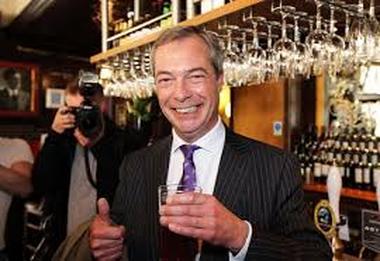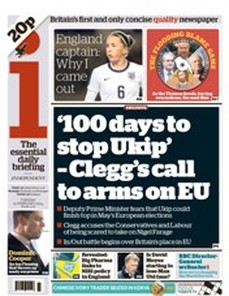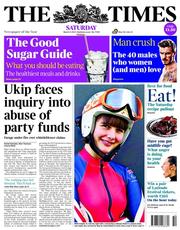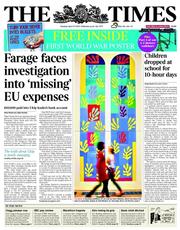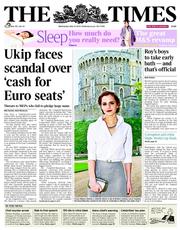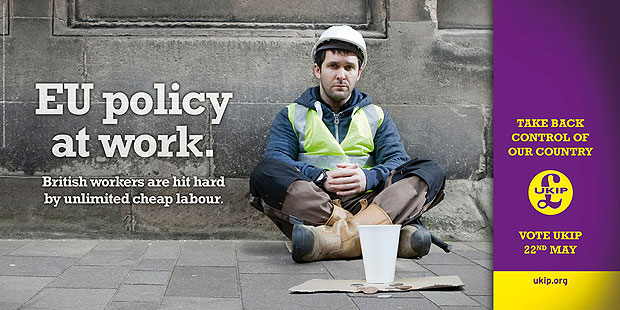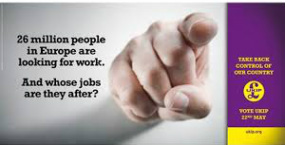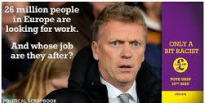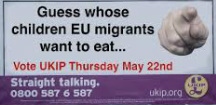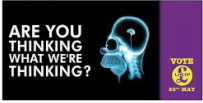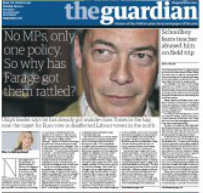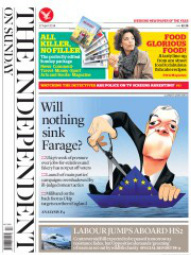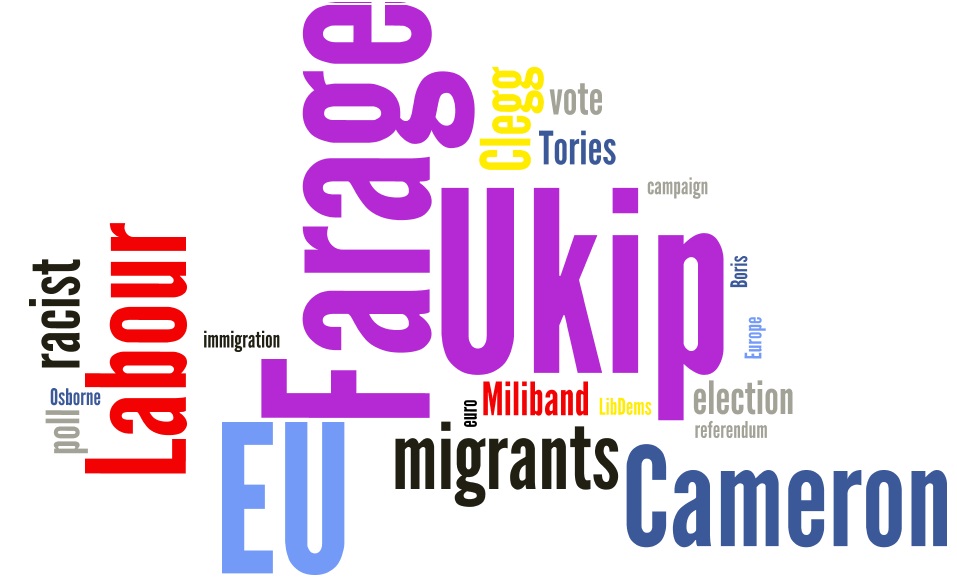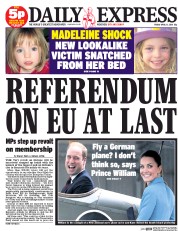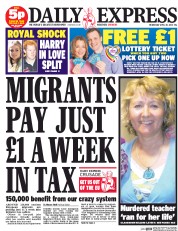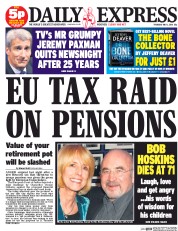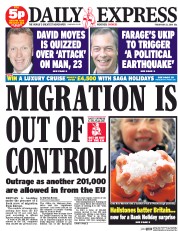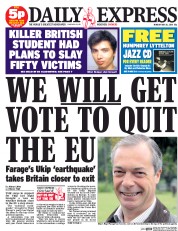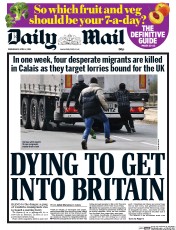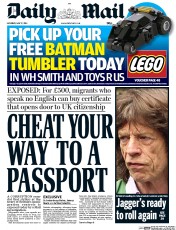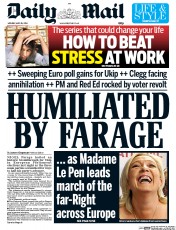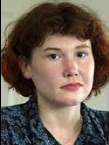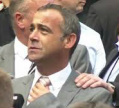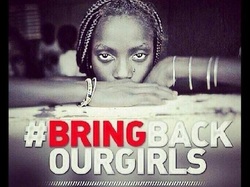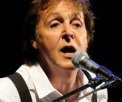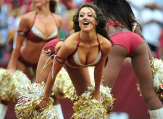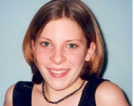European elections: the SubScribe audit'The media were to blame... They gave Farage too much publicity... His face was everywhere... Why is the party getting so much coverage? ..Why is he always on Question Time? ..It isn't four-party politics... Labour WON.'
The close focus on Ukip after the council election results were declared irritated a lot of people, particularly those on the Left. Labour had the biggest share of the vote and took the most council seats. Ukip's performance, as projected nationally by the BBC, had been worse than last year. It had 17% of the vote, compared with 23% in 2013. Labour has twice as many new councillors as Ukip and took control of six authorities; Ukip holds the balance of power in some councils and has become the official opposition in others, but it has none under its control. Based on these figures, without interpretation, the complaints seemed fair. But political journalism is all about interpretation. Bald figures can be deceptive. Look at the result of the first ballot in the Conservative leadership election of 1990. Margaret Thatcher secured 204 of the 273 available votes, a 54.8% share of the vote and a 14% majority over Michael Heseltine. By any measure, she had won. But she had lost, and it was so apparent that she had lost that she was persuaded not to contest the next round. A year before a general election, an opposition party should be sprinting ahead. Labour under Ed Miliband is jogging - and there's a fourth competitor on the three-lane track jostling for position, pushing any and all of the other competitors out of the way to try to get a clear run. As a far-Right party, Ukip was expected to take votes from the Tories - but it surprised people by the extent to which it robbed Labour as well. These were the news elements of the story - the match report, as opposed to the classified results - because news is what is different or unexpected, and the opposition party doing well in an election is not unusual. Come Sunday and the announcement of the European results, the importance of the rise of the Right across the continent was undeniable. Ukip topped the polls all over Britain - with the exception of the North West - and took the largest share of the national vote . The Liberal Democrats were slaughtered. Was this surge the result, if only in part, of media coverage of the election campaigns? The BBC - and Nick Robinson - has come in for much criticism from all quarters, with Nigel Farage's frequent appearances on Question Time cited as evidence. [SubScribe is about the Press rather than broadcasting, but will be looking at this later this week. For now, we'll just point out that the Greens' leader Natalie Bennett appeared twice before last year's elections; this time her party was represented only once - by the MP Caroline Lucas. Unlike Ukip, the Greens have an MP. They also pushed the LibDems into fourth place.] As to the newspapers - or at least the news pages - they barely woke up to Ukip until it shocked everyone by coming top of an opinion poll last month. Before that, it was Nick Clegg who read the runes. On February 11 he wrote a column for the i in which he said:
And it was Clegg who challenged Farage to a televised debate on Europe - only to be bested on both outings. It wasn't unbalanced reporting that gave Ukip the limelight, it was the LibDem leader - who is now nursing his wounds.
Press coverage of Ukip was mostly hostile, even the Express balked at backing the party. The Times splashed on three different "scandals" - the first questioned the way party funds were used, the second challenged Farage's expenses and the third looked at allegations that candidates were expected to pay a £10,000 dowry if they got into Strasbourg. 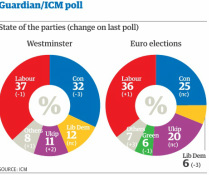
On the day the Times was reporting on Farage's expenses, the Guardian carried a post-Budget opinion poll under the heading "Tories stumble..." Labour was five points ahead on general election voting intentions and eleven in front for the European elections.
Ukip were on the up for the general election and holding steady at 20% for Europe. The following week Farage unveiled a series of billboards that were to be the central plank of his party's advertising campaign. They brought howls of protest - and a rash of spoofs.
Farage pronounced himself delighted with the posters, saying "I wish we'd gone further."
By now commentators were treating Ukip with greater seriousness. It could no longer be written off as a bunch of fruitcakes and loonies - racist fruitcakes and loonies at that - because the advance in the polls was relentless. By the end of the week YouGov had the party overtaking Labour to come out top in voting intentions for the European elections. But more than half of those polled - including a fifth of Ukip supporters - thought it had unworkable policies or that it was incapable of running the country.
There had been plenty of politics all year, but these were personality rather than policy stories. On the Tories' side there was the Nigel Evans trial, MPs resigning over rent boys and their cleaners, allegations of sex parties at the annual conference, the ousting of Maria Miller, should Boris run for Parliament? And Plebgate just wouldn't go away.
The LibDems were also embroiled in sex scandals with the Lord Rennard and Mike Hancock controversies - as well as having the Mail on their case over Cyril Smith, accusing the party of turning a blind eye to his abuse of children. With all this going on, there was little time for Miliband and co, although there was a flutter of interest when he brought David Axelrod over from America to offer election advice. The Labour leader talked about nationalisation and the minimum wage; Michael Gove talked about everything from FGM to American novelists; only Clegg talked about Europe - but no one (other than Farage on TV) was talking to him. It was as though the prospect of "Polling station" signs coming out of storage - and an extra 19 days' leave from Westminster because there wasn't anything to do there - had given the politicos a licence to wander around the country posing for silly pictures and talking about anything they fancied, regardless of whether it was relevant to the coming election. Should the Press have pulled them back on course and questioned them about the common agricultural policy or the working hours directive, trade or energy policy? Would anyone have printed or read the answers? Much simpler to follow the key players around and report what they said - especially if they hadn't a clue how much they spent on tins of tuna in Waitrose of a Saturday or who was leader of Middlewallop council.
Coverage of the final two weeks was utterly without substance: Miliband making a hash of eating a bacon sandwich; Boris and Dave making a hash of looking relaxed with their coffees on Newark station (and at the same time showing where the Tories' priorities lay - with the June by-election rather than the imminent vote).
Campaign stories were almost all based on opinion polls or talking heads hypothesising. Neither politicians nor reporters seemed to have anything to say that might enlighten the electorate or help them to decide which way to vote. We know, for example, that Ukip MEPs are not renowned for their attendance record at Strasbourg; it might have been nice to have been told whether the party's candidates intended to turn up or just take the money and stay at home. The Greens were ignored. There were moments of truth, such as when Farage was royally tripped up by James O'Brien in an LBC interview, below, but they were rare. No wonder turnout was so low. |
|
SubScribe is looking through the election coverage of national papers, apart from the FT, Star and i, from May 12-26
The details Daily Telegraph The Guardian Independent Daily Mirror Daily Express Daily Mail The Times The Sun The whitetop
agenda 
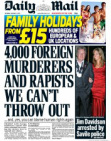
Worried about jobs, benefits, crime? Look no further than our newspapers. Read more on
A year of xenophobia Editor's pick
|
Please sign up for SubScribe updates
(no spam, no more than one every week or two)
|
|
|

